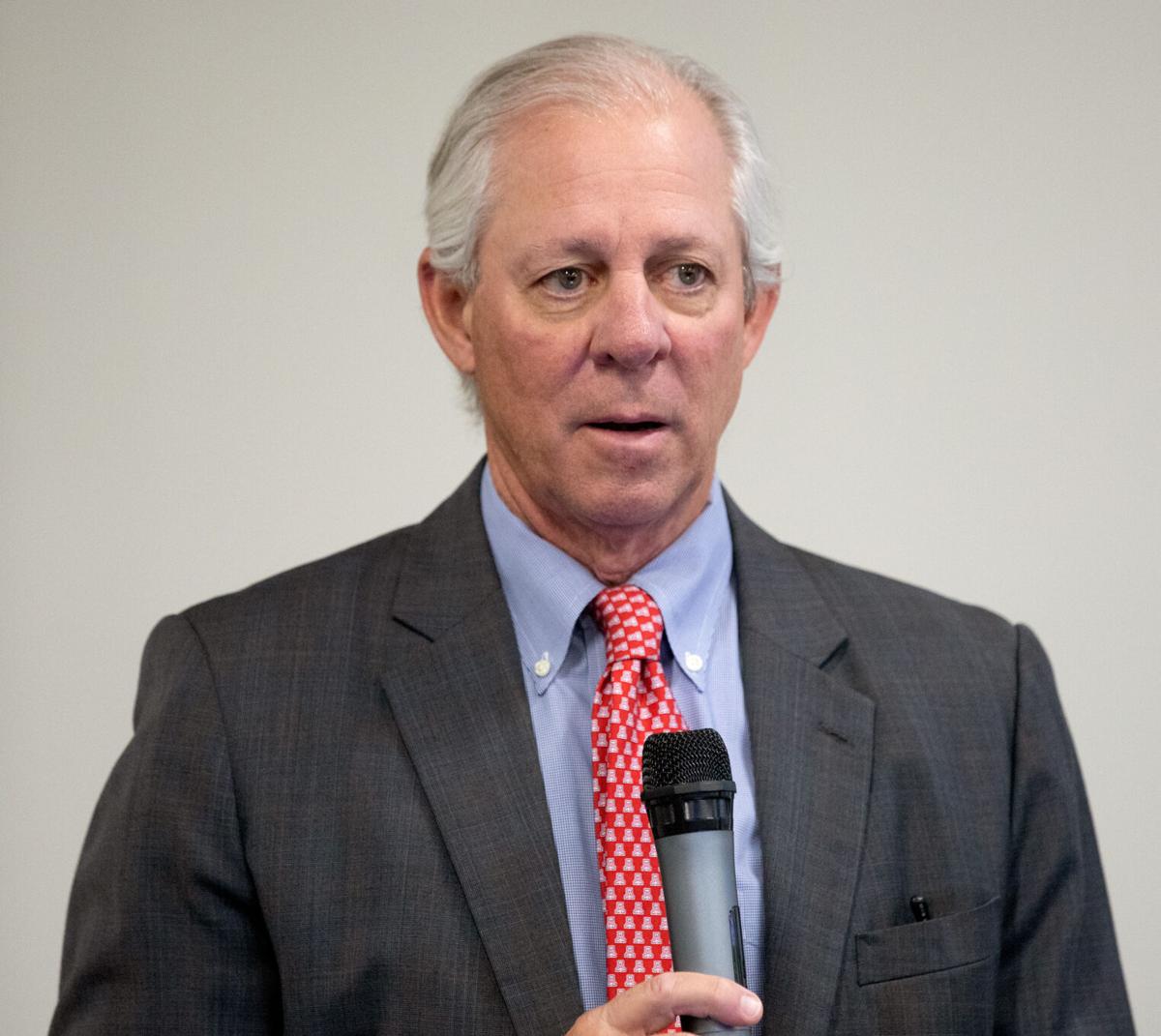Faculty Senate representatives are hesitantly endorsing University of Arizona President Robert C. Robbins’ new plans for addressing the university’s budget deficit and financial crisis.
Robbins told the Arizona Board of Regents late Wednesday that Lisa Rulney resigned that day as UA’s vice president of business affairs and chief financial officer. John Arnold, the executive director of ABOR, will take over her UA role in an interim position.
Additionally, Robbins told the regents the university will immediately enact a hiring and compensation freeze, halt international travel for senior administrators, restrict university purchasing and defer nonessential capital projects, conclude strategic initiatives funding, cut back on financial aid for out-of-state students, and eliminate the tuition guarantee for all new students starting in fall 2025 but not for students already enrolled.
Robbins said the extent of the UA’s “ongoing budget deficit” isn’t yet known. The crisis was first announced in early November, when Robbins said there had been a $240 million “miscalculation” in the UA’s predicted days worth of cash on hand.
The cash reserves problem has since been found to be a “symptom of two other, more serious problems,” Regents Chair Fred DuVal said Wednesday: a budget deficit and inadequate financial and reporting structures.
Faculty who spoke to the Arizona Daily Star Thursday about the new financial plans are all Faculty Senate members, meaning they were elected by their college or university colleagues to represent them in shared governance.
“I’m cautiously optimistic,” said Leila Hudson, an anthropology professor who serves as Faculty Senate chair. “I’m optimistic that we have the opportunity to turn things around, (but) here’s still a lot that could go wrong.”
Rulney’s resignation
Hudson said Robbins’ announcement that Rulney resigned Wednesday was “a surprise in the moment but not entirely unpredicted,” and added that “the experience and steady hand of John Arnold in imposing some financial discipline on the institution is a good thing.”
Arnold was previously budget director for then-Gov. Jan Brewer (governor 2009-2015) during the Great Recession, Robbins noted in his address to the regents.
The CFO shakeup was expected, said Tessa Dysart, a clinical professor of law.
“It’s hard to see women in leadership positions lose their jobs and I don’t think that CFO Rulney is singularly responsible for the problem,” she said. “I’m sad to see her go. She’s been a consistent presence at the university for 20 years.”
Despite her disappointment, the hiring of Arnold is a “good idea,” Dysart said.
“I think the most surprising thing to me was the appointment of John Arnold as interim CFO,” she said. “To me that underscores the board’s determination to oversee the budget issues which I think is a good idea.”
Lucy Ziurys, a regents professor of astronomy, said there were “no alternatives” to Rulney’s resignation.
“It was sort of inevitable after the string of events,” she said. “It’s always unfortunate when someone has to resign, but I don’t think there was any other choice in this case.”
The issue of athletics
In a Faculty Senate meeting earlier this month, Robbins stated there would be “100%” be layoffs in the Athletics Department. He seemed to backtrack in Wednesday’s meeting, which Marvin Slepian, a regents professor in biomedical engineering, said was expected.
“Things are always said all over the place,” Slepian said.
Robbins has repeatedly called athletics a “vexing” problem, and admitted that the university has given loans, most of which have yet to be repaid, to athletics amounting to $86 million since 2018.
“I’m hoping that Robbins does keep to his promise about reducing athletics,” said Ziurys. “Everybody is going to take some kind of financial hit and athletics should be one of them.”
Hudson said she hopes faculty will be more involved in making decisions about athletics.
“There needs to be new ways of understanding the relationship between academics and athletics,” she said. “Our troubles here aren’t unique. I see an opportunity for the faculty to be a part of that discussion, and I would be disappointed if we were not.”
The issue of athletics is not only complicated for Robbins. The faculty themselves are divided on the issue. While cuts are expected, Dysart said, “athletics is an important part of the university.”
“I think it’s part of what brings in so much community and involvement,” she said. “Athletics are one of the many ways to get the community excited about the university.”
New budgeting model
There will be a new budgeting model not just at the UA, but also at Arizona State University and Northern Arizona University, the regents decided. They voted Wednesday night to get rid of both Responsibility Centered Management (RCM) and Activity Informed Budgeting (AIB), both of which are unpopular with faculty at the UA.
The new budgeting model has yet to be announced, but the regents and Robbins said it will be “centralized.”
It’s going to be an interesting transition, according to Slepian.
“There’s no question that a centrally managed system with distribution of funds to different colleges is a lot simpler to manage,” he said. “On the other hand, there has to be enough voices from colleges around the table to make sure they’re getting the right allotment.”
Hudson said she is “worried about the possibility that a new layer of administrative control coming from far outside our local ecosystem might supersede the kinds of local expertise and local knowledge that are really key to fixing what’s wrong.”
Despite her concerns, “I think both the regents and the president made a signal that they are listening to us,” she said. “The proof will be in the pudding.”
Her sentiments were echoed by Ziurys.
“Robbins has been interacting reasonably well with the faculty and I think he listens to the faculty more,” she said. “He’s been much more engaged, and when a president is engaged with the faculty, good things happen.”
University of Arizona President Robert Robbins gives a financial update: Dec 13





